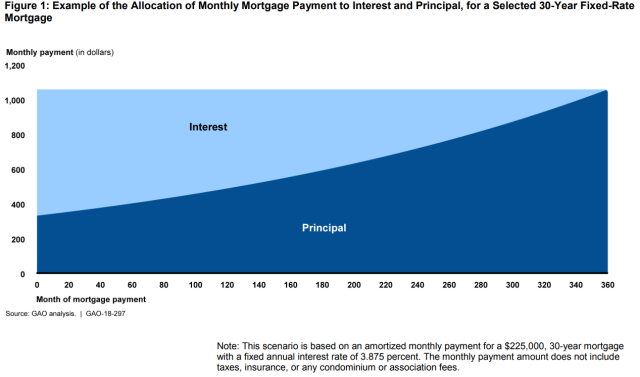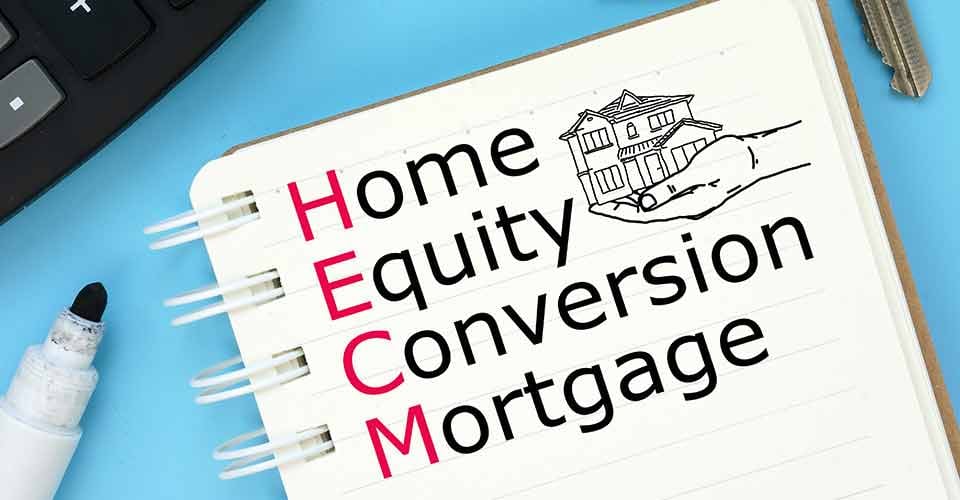Long-Term Consequences of Equity Release Mortgages on Property Ownership
Long-Term Consequences of Equity Release Mortgages on Property Ownership
Blog Article
Exploring the Various Kinds Of Equity Release Mortgages Available Today
Equity Release mortgages present different options for homeowners aged 55 and over. equity release mortgages. These financial items satisfy various demands and choices, enabling individuals to access funds from their residential or commercial property. From lifetime mortgages to common appreciation home loans, each kind provides unique advantages. Comprehending these choices is vital for making notified choices. What elements should one take into consideration when choosing one of the most appropriate equity Release strategy? The information that follow might drop light on this vital topic
Comprehending Equity Release Mortgages
Equity Release home mortgages provide home owners, typically those aged 55 and over, with a means to access the worth tied up in their residential or commercial property without requiring to sell it. This economic alternative allows individuals to convert a section of their home equity right into cash, which can be utilized for numerous purposes, such as home renovations, paying off debts, or financing retirement.Equity Release can take different kinds, yet it essentially entails loaning against the value of the home while preserving ownership. Homeowners can pick to get a swelling amount or a series of smaller payments, relying on their financial requirements and preferences.Additionally, the amount available for Release is affected by the building's value, the house owner's age, and particular loan provider standards. Generally, comprehending equity Release home mortgages is necessary for property owners to make informed choices concerning using their home's equity while taking into consideration the long-lasting implications.
Lifetime Mortgages
Life time home loans represent one of one of the most popular types of equity Release. This monetary product allows homeowners, normally aged 55 or older, to obtain versus the value of their residential or commercial property while preserving ownership. The loan, which is secured against the home, accrues interest gradually but does not need monthly payments. Instead, the finance and accrued rate of interest are paid back when the home owner dies or moves right into lasting care.Lifetime home loans offer flexibility, as customers can select to receive a lump sum or select a drawdown center, accessing funds as required. Significantly, many strategies featured a no-negative-equity warranty, guaranteeing that consumers will certainly never owe even more than the worth of their home. This function offers peace of mind, enabling people to appreciate their retirement without the anxiety of depleting their estate. In general, life time home loans function as a practical option for those seeking financial backing in later life.
Home Reversion Program

Drawdown Life Time Mortgages
While lots of home owners look for means to access their wealth, drawdown life time home loans offer a versatile option that permits people to Release funds slowly. This type of equity Release home mortgage allows home owners to obtain against the value of their home while keeping ownership. Unlike typical life time home mortgages, drawdown strategies enable customers to access a section of their equity upfront and withdraw added funds as required, up to a predetermined limit.This feature can be particularly advantageous for those who wish to manage their finances meticulously, as it lessens passion accumulation by just billing passion on the quantities drawn. Additionally, drawdown life time mortgages typically include a "no adverse equity guarantee," guaranteeing that consumers will certainly never owe greater than their home's worth. This alternative fits senior citizens that desire economic safety and versatility, allowing them to satisfy unforeseen expenses or maintain their way of life without needing to sell their property.
Improved Life Time Mortgages
Boosted Lifetime Home mortgages offer unique benefits for qualified home owners seeking to Release equity from their residential or commercial properties. Comprehending the qualification requirements is crucial, as it identifies who can gain from these specialized financings. It is likewise important to review the possible drawbacks associated with enhanced choices, guaranteeing an all-around perspective on their usage.
Eligibility Standards Explained
Understanding the qualification requirements for Boosted Life time Mortgages is essential for potential applicants seeking to access the equity in their homes. Generally, applicants must be aged 55 or older, as this age requirement is conventional in the equity Release market. Property owners must have a residential or commercial property valued at a minimal limit, which can differ by loan provider. Importantly, the residential property needs to be their main house and in good condition. Lenders typically evaluate the property owner's health condition, as particular health conditions may improve qualification and advantages. Furthermore, applicants must not have existing significant financial obligations safeguarded against the residential property. Meeting these criteria permits individuals to check out Improved Lifetime Home loans as a feasible option for accessing funds locked up in their homes.
Advantages of Improved Home Loans
After clearing up the qualification requirements, it ends up being apparent that Enhanced Life time Mortgages supply a number of significant benefits for house owners wanting to take advantage of their residential or commercial property equity. Mostly, they supply access to a larger finance quantity compared to standard lifetime home mortgages, profiting those with health problems or age-related factors that increase their life span danger. This improved loaning ability allows homeowners to meet numerous economic requirements, such as home enhancements or retired life expenses. Additionally, these home mortgages normally come with versatile repayment official site alternatives, enabling consumers to manage their funds extra properly. The no-negative-equity warranty even more assures that home owners will certainly never ever owe greater than their residential property's value, supplying comfort. Overall, Enhanced Lifetime Mortgages provide a compelling option for qualified house owners seeking economic options.
Potential Downsides Thought About
While Boosted Lifetime Home mortgages use various advantages, potential drawbacks call for careful factor to consider. One substantial issue is the effect on inheritance; the equity released lowers the value of the estate left to recipients. Furthermore, these home mortgages can accumulate considerable passion in time, causing a significant financial debt that may exceed the original funding amount. There may additionally be constraints on home adjustments or rental, limiting property owners' flexibility. Boosted items frequently call for specific wellness conditions, suggesting not all home owners will qualify. Lastly, handling the costs and fees related to these home mortgages can be complicated, possibly leading to unexpected prices. As an outcome, people should thoroughly examine their situation and consult financial consultants prior to proceeding.
Shared Appreciation Home Loans
Shared Admiration Mortgages stand for an unique monetary plan that enables homeowners to access equity while sharing future home value raises with the lender. This strategy uses potential advantages such as reduced regular monthly settlements, but it likewise includes downsides that must be carefully taken into consideration. Understanding the qualification requirements is important for those interested in this option.
Concept Review
Equity Release home mortgages, particularly in the kind of shared appreciation home mortgages, provide house owners an one-of-a-kind financial service that allows them to accessibility funds by leveraging the value of their home. In this plan, a lending institution gives a finance to the house owner, which is generally settled with a share of the building's future recognition in value. This implies that when the house owner markets the building or dies, the lender receives a portion of the raised value, rather than just the preliminary lending amount. Shared gratitude home loans can be appealing for those wanting to supplement their income or finance substantial costs while maintaining possession of their home. Nonetheless, the monetary effects of common recognition should be meticulously thought about by possible consumers.
Benefits and Downsides
Although shared appreciation mortgages can offer significant financial benefits, they additionally feature significant drawbacks that possible consumers need to consider. These mortgages permit house owners to gain access to equity in their residential properties while sharing a section of any future admiration with the lending institution. This plan can be valuable during times of increasing home values, offering considerable funds without month-to-month settlements. The major disadvantage is the prospective loss of equity; house owners might finish up with substantially reduced inheritance for successors. Additionally, the intricacy of the terms can result in misunderstandings relating to payment commitments and the portion of recognition owed. It is essential for borrowers to evaluate these aspects meticulously before devoting to a common appreciation home mortgage.

Qualification Requirements
What requirements must home owners fulfill to qualify Your Domain Name for a shared recognition home loan? Mainly, candidates must be at least 55 years of ages, assuring they are within the target market for equity Release items. Additionally, the building has to be their primary house and usually valued over a specified minimum threshold, frequently around ? 100,000. Lenders also analyze the home owner's monetary circumstances, consisting of revenue and arrearages, to ascertain they can handle the home mortgage sensibly. Notably, the residential or commercial property has to remain in excellent condition and devoid of considerable legal encumbrances. Homeowners must likewise have a clear understanding of the terms, including exactly how appreciation will be shown to the lending institution upon sale or transfer of the building, as this influences total returns.
Picking the Right Equity Release Choice

Regularly Asked Inquiries
What Age Do I Required to Be for Equity Release?
The age need for equity Release usually starts at 55 for most strategies. Nonetheless, some providers might use choices for those aged 60 and above, reflecting varying terms based on private conditions and lending institution policies.
Will Equity Release Influence My Inheritance?
Equity Release can impact inheritance, as the amount borrowed plus rate of interest decreases the estate's value. Successors might receive much less than expected, relying on the building's appreciation and the overall financial obligation at the time of passing.
Can I Relocate House With Equity Release?
The question of relocating residence with equity Release arises regularly. Normally, individuals can move their equity Release plan to a new property, but particular terms and problems may apply, requiring examination with the lending institution for advice.
Are There Charges Related To Equity Release Mortgages?
Fees connected with equity Release home loans can include plan costs, appraisal fees, and legal costs. Furthermore, there might be early settlement click resources charges, which can affect the total cost and monetary effects for the consumer.
How Does Equity Release Effect My Tax Circumstance?
Equity Release can influence one's tax circumstance by possibly enhancing gross income, as released funds are considered capital. Nevertheless, it generally does not incur prompt tax obligation responsibilities, making it vital to consult an economic advisor for individualized guidance.
Final thought
In recap, the variety of equity Release mortgages readily available today supplies house owners aged 55 and over multiple pathways to access their building's worth - equity release mortgages. Whether going with a life time home mortgage, home reversion strategy, or other options, each choice offers distinctive benefits tailored to specific monetary needs. Cautious consideration and examination with a monetary advisor are vital to guarantee the chosen equity Release option aligns with financial situations and individual objectives, inevitably assisting in informed decision-making for a secure economic future. Equity Release mortgages present numerous choices for property owners aged 55 and over. Equity Release home mortgages provide house owners, normally those aged 55 and over, with a means to access the value tied up in their residential or commercial property without requiring to offer it. Improved Lifetime Home mortgages use distinctive advantages for qualified homeowners looking for to Release equity from their residential properties. Equity Release mortgages, especially in the form of shared gratitude home loans, provide home owners an one-of-a-kind monetary solution that enables them to access funds by leveraging the worth of their home. In recap, the selection of equity Release home loans available today provides property owners aged 55 and over numerous pathways to access their residential property's value
Report this page